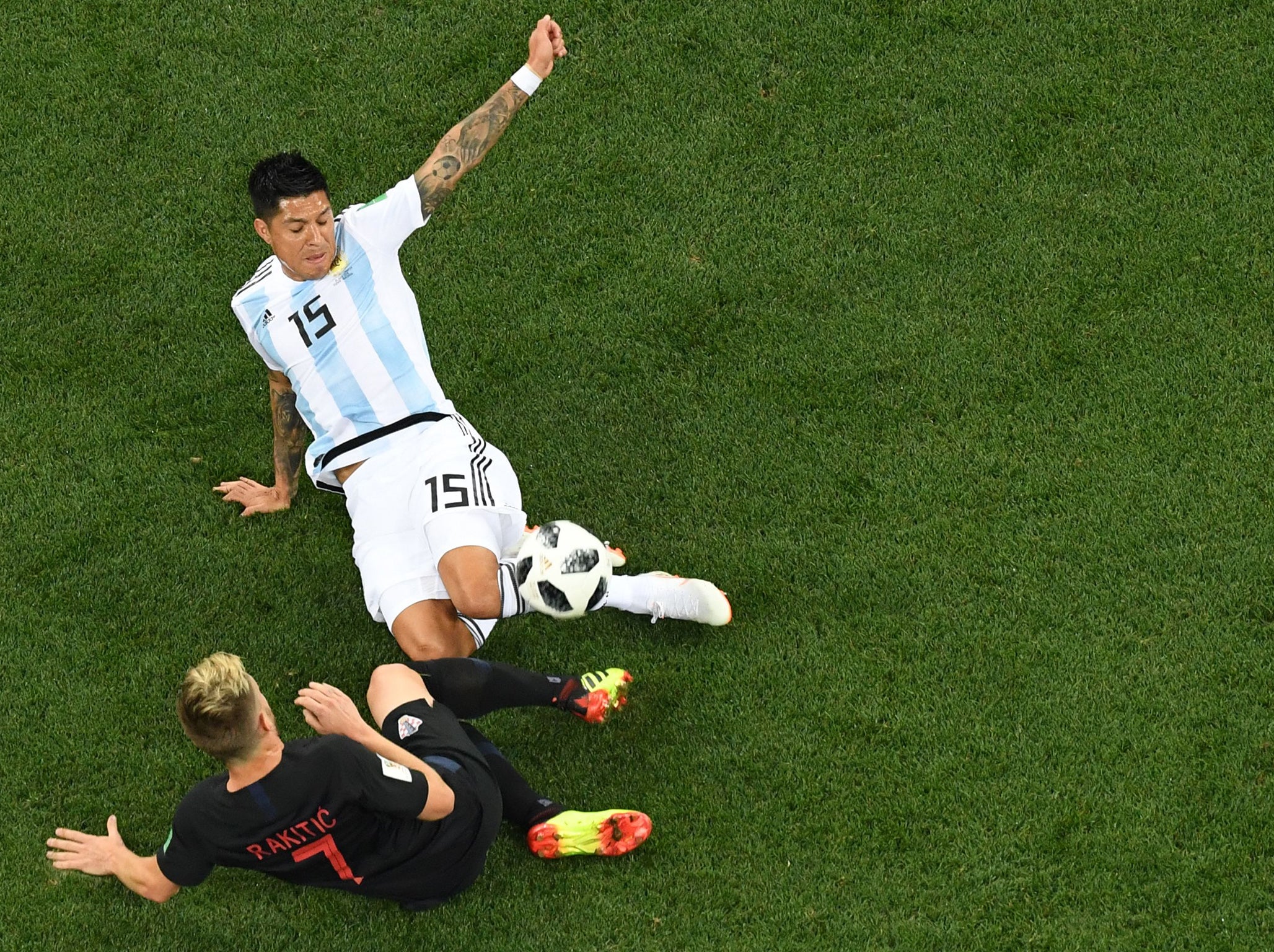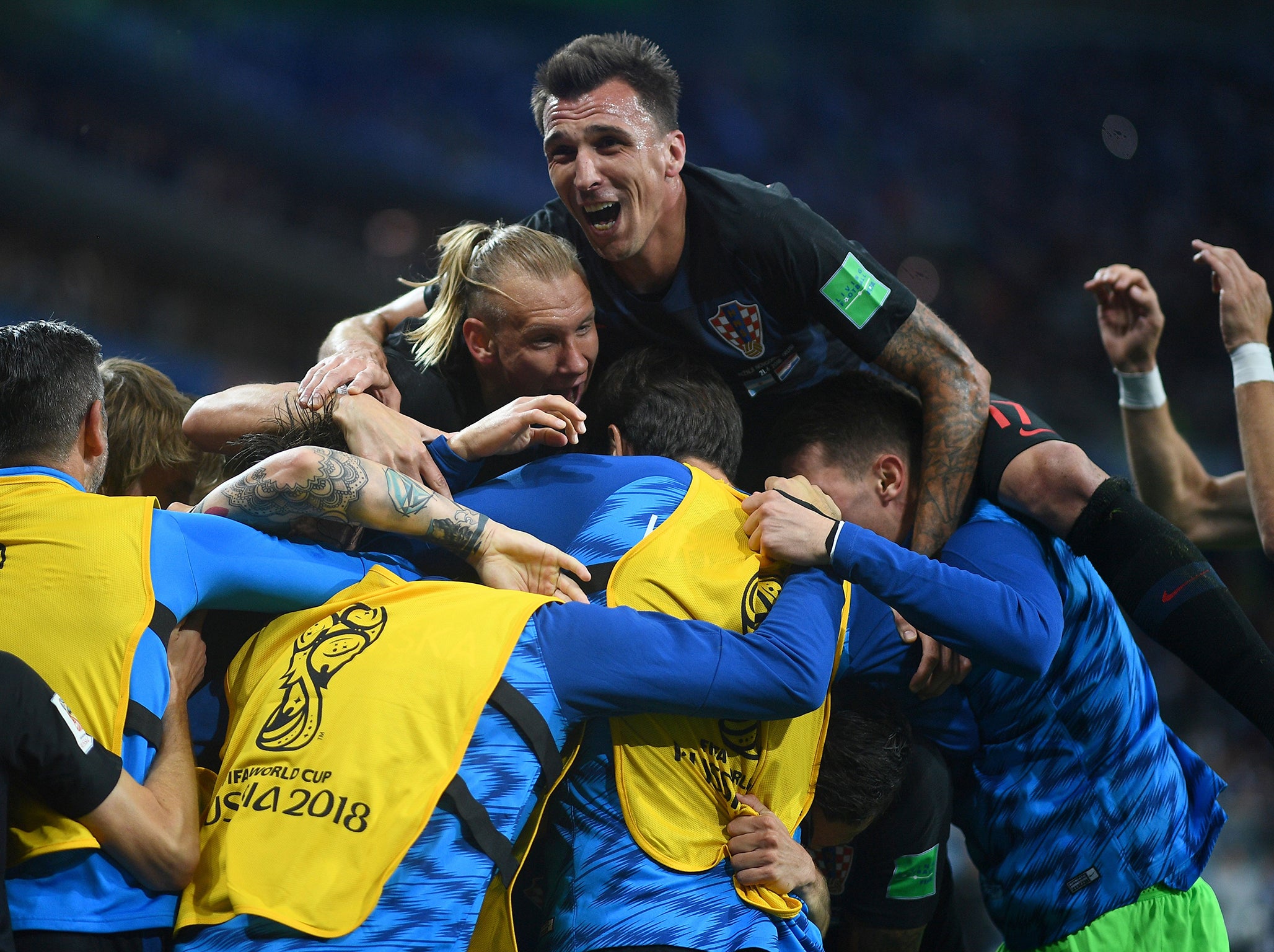Croatia’s 3-0 victory over Argentina shows why they deserve to be talked about as World Cup 2018 contenders

Your support helps us to tell the story
From reproductive rights to climate change to Big Tech, The Independent is on the ground when the story is developing. Whether it's investigating the financials of Elon Musk's pro-Trump PAC or producing our latest documentary, 'The A Word', which shines a light on the American women fighting for reproductive rights, we know how important it is to parse out the facts from the messaging.
At such a critical moment in US history, we need reporters on the ground. Your donation allows us to keep sending journalists to speak to both sides of the story.
The Independent is trusted by Americans across the entire political spectrum. And unlike many other quality news outlets, we choose not to lock Americans out of our reporting and analysis with paywalls. We believe quality journalism should be available to everyone, paid for by those who can afford it.
Your support makes all the difference.It was a bold statement that begged a double take, delivered with a knowing smile. “Argentina is our easiest game,” Croatia coach Zlatko Dalić remarked earlier this week, only to add after a deliberate pause for dramatic effect: "But I didn't say that Argentina was the easiest opponent. I said that this was the easiest game for us. We have nothing to lose. We are playing against one of the best.”
Maybe Dalić really believed that. After all, his Croatian side came haring out of the traps in front of a boisterous crowd in Nizhny Novgorod, determined not to allow a battle-scarred Argentinian defence to settle. Was that devil-may-care start a response to their perceived desperate situation, an application of the tired adage that attack is the best form of defence?
Perhaps. Perhaps not. In reality, Dalić was far more likely employing that most trusty of the old managerial mind games, not so subtly transferring the weight of expectation from his side to the opposition. Because – on current form, at least – Argentina are not one of the world’s best sides. But perhaps Croatia are, again winning in style despite a performance that only truly ignited in the closing stages. It is an attribute that could take them far in Russia.
Things have been going swimmingly since Dalić arrived home last October from the UAE Pro-League, where he had been managing Al Ain FC. Immediately tasked with sealing a route to Russia after a disappointingly patchy qualification campaign – Croatia were level on points with Ukraine and two behind Iceland –Dalić’s first act as manager, after switching on his PC and ordering his stationary, was to figure out how to successfully cram both Luka Modrić and Ivan Rakitić into his team.
Deploying Rakitić in front of Modrić had helped to cost his predecessor Ante Čačić his job. So Dalić did the opposite, pushing Modrić into the number 10 position and using Rakitić further behind him, with a significant amount more defensive responsibility.
It has worked out well. In his first game Croatia beat Ukraine 2-0 in Kiev; a few weeks later and they thrashed Greece 4-1 over two legs to secure their spot in Russia. He was rewarded with a bumper contract shortly afterward, with Croatia making a winning start to the World Cup when they comfortably saw off Nigeria 2-0 last Saturday. They did not play particularly well but it did not matter: unlike so many big teams thus far they got the job done.
The benefits of Dalić’s painstakingly well-drilled 4-2-3-1 were easy to see against Argentina. They started brightly: defensively robust, with Modrić running the game between the lines and both Ante Rebić and Ivan Perišić threatening from out wide. Had the former not fluffed his lines immediately before half-time – receiving the ball from Modrić only to get it stuck under his feet and blazing a shot wide – they would have taken a deserved lead into the break.
Sure, their opener came in fortuitous circumstances – Rebić atoned for his earlier miss with a stunning volley, although it only came to be because of Willy Caballero’s carelessness – but the second and third goals were superb and Croatia deserved all three points, even if the frequency at which their counter-attacks can fizzle out into nothing could later cause them problems.
More impressive was Rakitić’s performance, deployed as a deep-lying playmaker with plenty of bite. To witness him charging around the midfield making almost equal contributions in attack and defence is testament both to Dalić’s vision and his motivating power, with Rakitić’s aggressive performance neatly surmised not by a languid through-ball but the wincing 50/50 he jumped into with Enzo Pérez midway through the opening half.

A lot has already been made of the supposed decline of managerial talent at the World Cup, a natural consequence – some argue – of how international football has now been utterly surpassed by the club game in terms of status and quality. And the stats would appear to back that up: this is the first World Cup since 1970 when none of the managers have previously won a European Cup, and the first since 1958 when none of the managers have won a Spanish, Italian, English or German league title.
But to do what Dalić has begun to do with the Croatian national team – introducing a new, rigorously-drilled system that transitions effectively from a lopsided 4-3-3 into a 4-2-3-1, and to convince high-status superstars such as Rakitić and Modrić to adapt their normal club games to that system – requires confidence and conviction. Croatia are not yet the finished article. And yet that hasn’t stopped them recording two particularly eye-catching results.
Which rather begs the question: how far can Croatia go? Can they go as far as France 1998, when they finished third just six years after winning recognition from Fifa? And can they translate their recent strong showings at European Championships, where they reached the quarter-finals in 2008 and the knockout stages in 2016, to the world stage?

There is no easy answer. This was only their second game of the tournament, of course, and they still have to face Iceland, who beat them 1-0 in Reykjavík and topped their qualification group. But there is the growing sense that they are a team to be taking seriously, not least because if they avoid defeatin their next game, an eminently winnable Round of 16 match against likely either Denmark or Australia follows.
Beyond that, Spain, Portugal and revitalised host nation Russia all lurk menacingly in their half of the draw, but Croatia have shown they have little fear in playing an expansive game against an international heavyweight led by one of the best players in the world.
When Dalić made that oh so knowing comment about Argentina ahead of this fixture he was not talking literally – but he may as well have been. For the second time in a row, Croatia recorded an impressive result while still playing as if there is far more to come. They truly deserve to be taken seriously as genuine dark horses in this most intriguing of tournaments.
Join our commenting forum
Join thought-provoking conversations, follow other Independent readers and see their replies
Comments